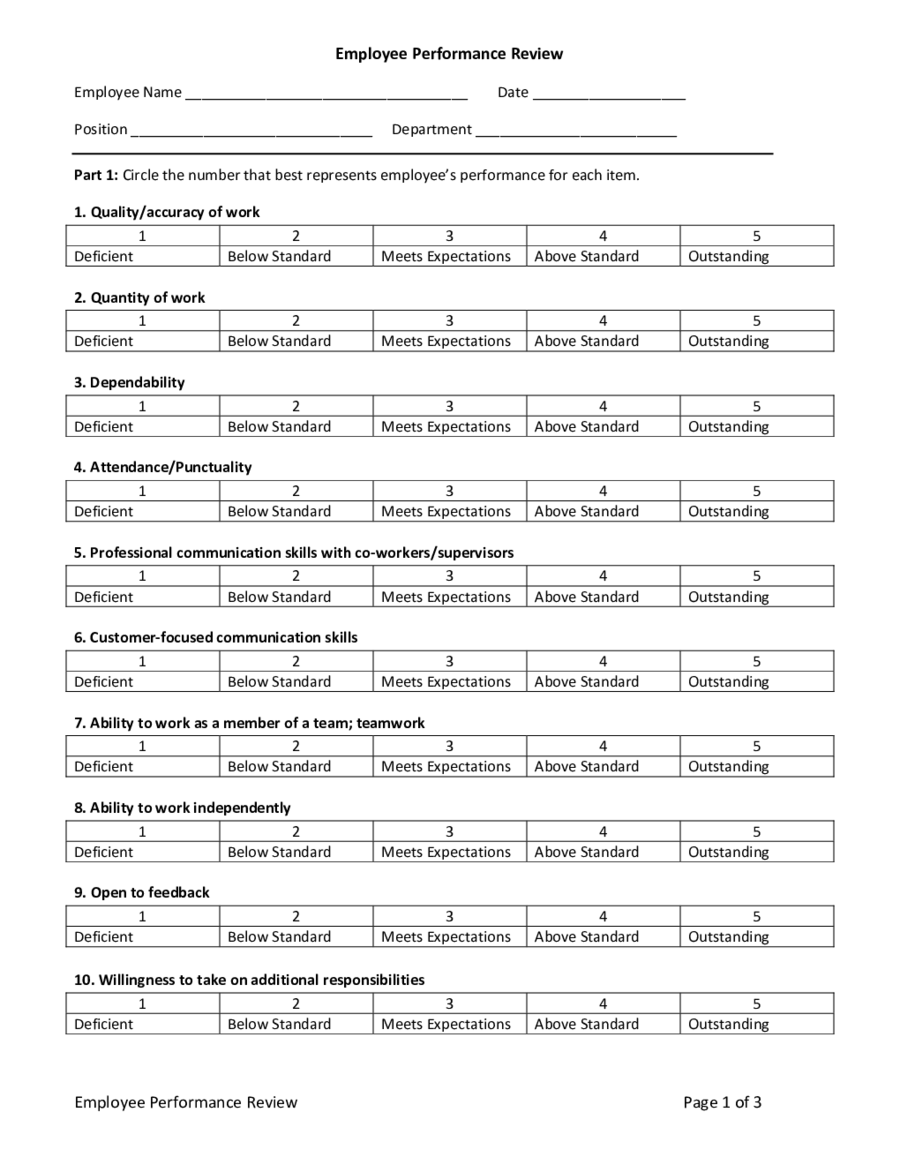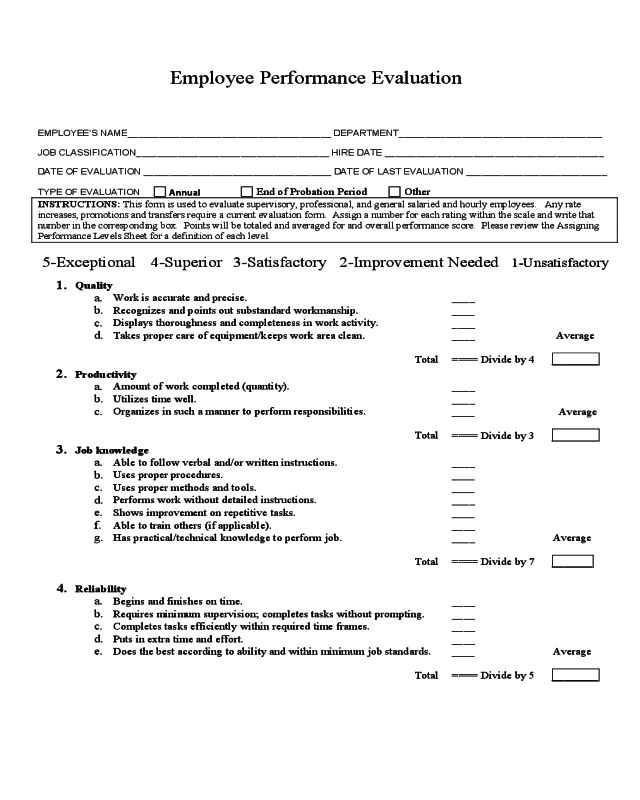Evaluation Of Employees Performance
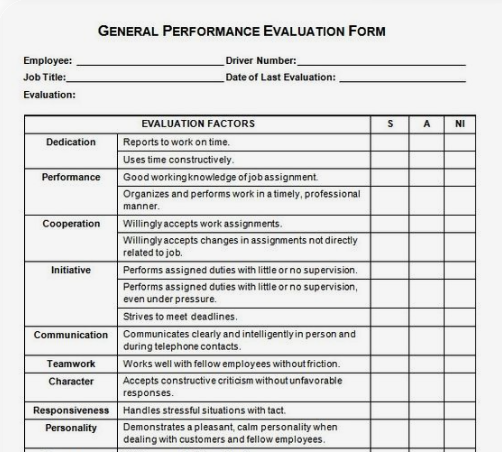
Annual employee performance evaluations are underway across various sectors, sparking renewed debate about their effectiveness and relevance in today's dynamic work environment. These evaluations, a staple of human resource management for decades, are increasingly facing scrutiny as companies explore alternative approaches to assess and foster employee growth.
At the heart of this ongoing discussion lies the question of whether traditional performance reviews accurately reflect an employee's contribution and potential. The purpose of these evaluations, according to the Society for Human Resource Management (SHRM), is to provide feedback, identify areas for improvement, and inform decisions regarding compensation, promotion, and termination.
However, some argue that the process is often subjective, time-consuming, and can even be detrimental to employee morale.
The Current Landscape of Performance Evaluations
Traditionally, performance evaluations involve managers assessing employees against pre-defined metrics, often using rating scales and written comments. This process usually culminates in an annual review meeting, where feedback is delivered and goals are set for the coming year.
This approach has been widely adopted across industries, from large corporations to small businesses. For example, General Electric, once a staunch proponent of the annual performance review, famously abandoned the practice in favor of more frequent and informal feedback sessions.
The shift reflects a growing trend towards continuous performance management.
Criticisms of Traditional Evaluations
One of the main criticisms of annual performance reviews is their backward-looking nature. Employees are often judged on their performance over the past year, which may not accurately reflect their current capabilities or future potential.
Furthermore, the subjective nature of these evaluations can lead to bias and unfair treatment. Studies have shown that factors such as gender, race, and personal relationships can influence managers' assessments, leading to inconsistent and inequitable outcomes.
This can create a sense of unfairness and demotivation among employees.
Alternative Approaches to Performance Management
In response to these criticisms, many companies are exploring alternative approaches to performance management. These include continuous feedback systems, 360-degree reviews, and project-based assessments.
Continuous feedback systems involve regular, informal check-ins between managers and employees, allowing for real-time feedback and course correction. 360-degree reviews gather feedback from multiple sources, including peers, subordinates, and clients, providing a more comprehensive assessment of an employee's performance.
Project-based assessments focus on evaluating an employee's contribution to specific projects, offering a more objective and relevant measure of their skills and abilities.
Impact on Employees and Organizations
The effectiveness of performance evaluations can have a significant impact on both employees and organizations. When done well, evaluations can motivate employees, improve performance, and foster a culture of continuous improvement.
However, poorly executed evaluations can lead to decreased morale, increased turnover, and a decline in overall productivity. A recent survey by Gallup found that only 14% of employees strongly agree that their performance reviews inspire them to improve.
This underscores the need for organizations to carefully consider their approach to performance management.
Moving Forward: The Future of Performance Evaluations
As the workplace continues to evolve, performance evaluations are likely to undergo further transformation. The focus is shifting towards creating a more agile, collaborative, and employee-centric approach to performance management.
Organizations are increasingly recognizing the importance of providing employees with regular feedback, opportunities for growth, and a clear understanding of their contributions to the company's success.
"The goal is to create a system that not only measures performance but also fosters development and engagement,"explains Dr. Sarah Jones, a leading HR consultant.
Ultimately, the future of performance evaluations lies in creating a system that is both fair and effective, helping employees to reach their full potential and contribute to the overall success of the organization.

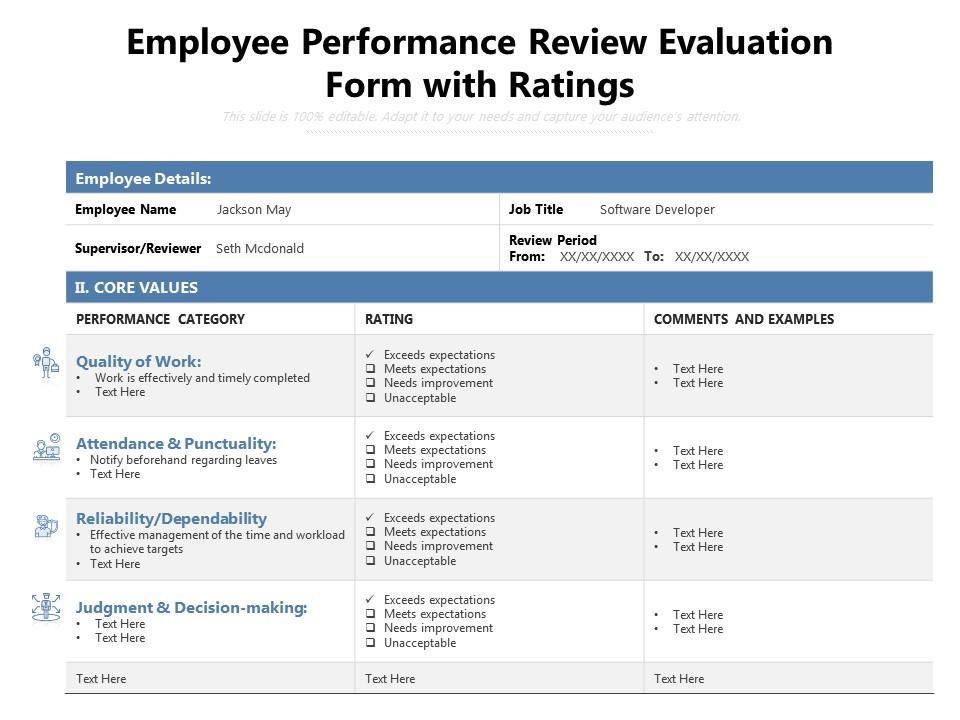
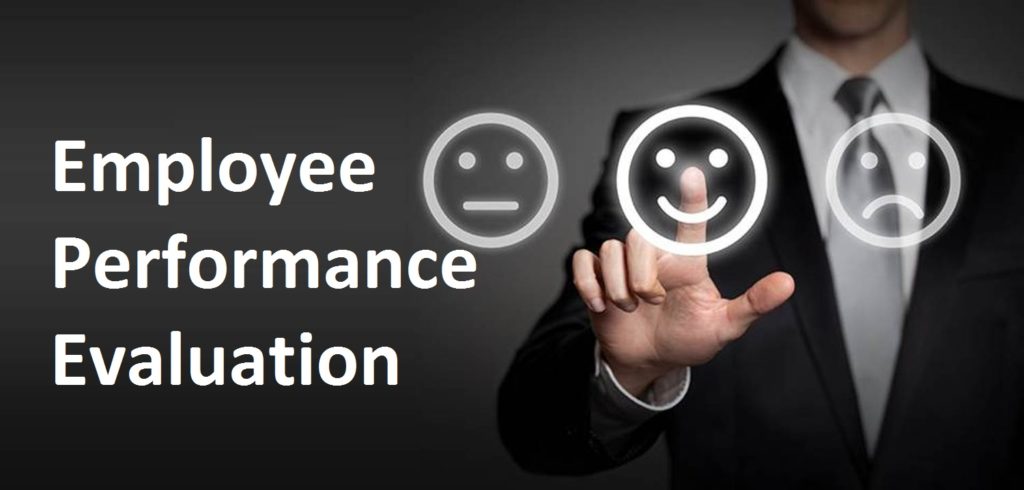
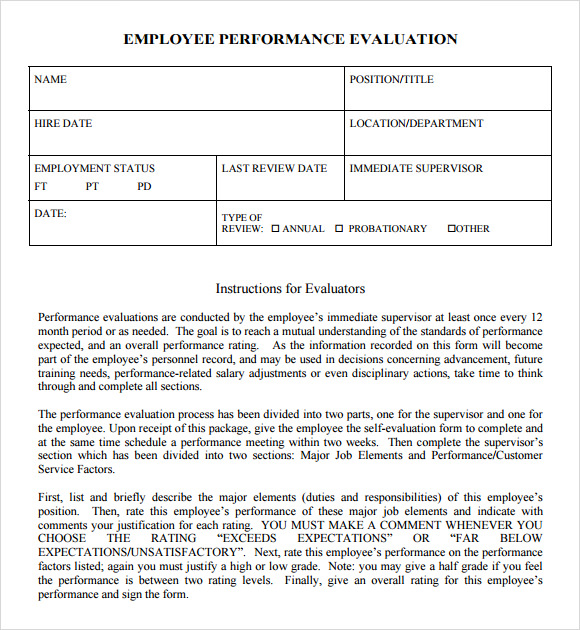
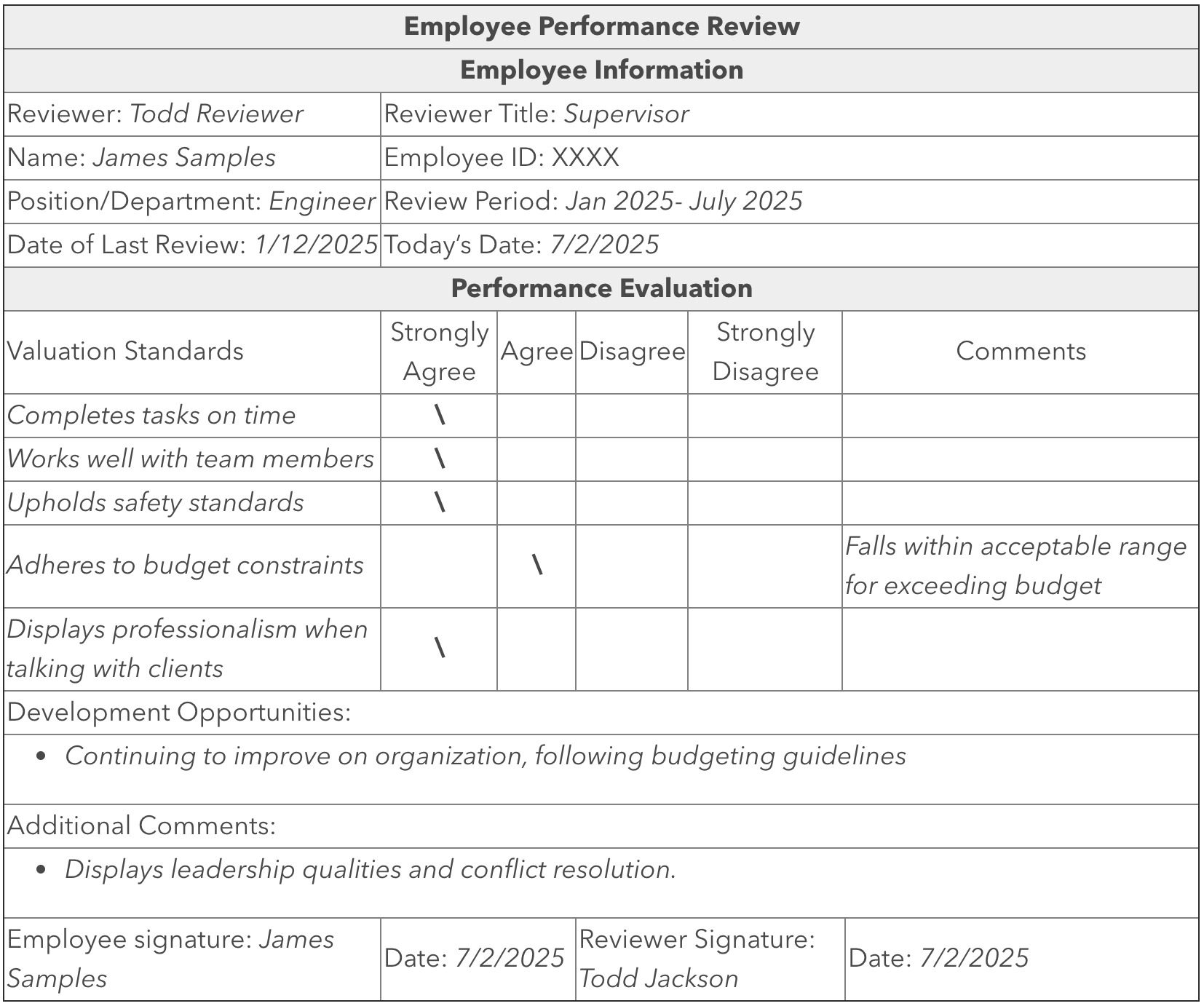
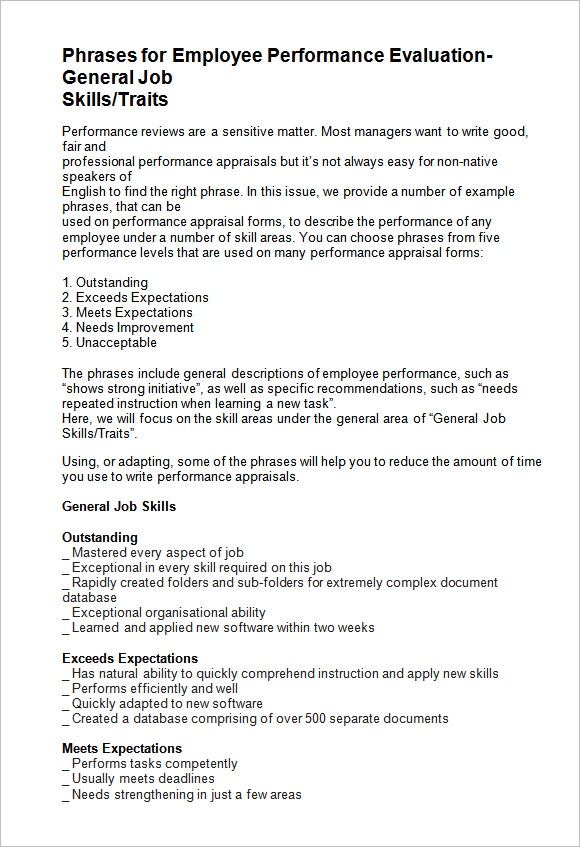
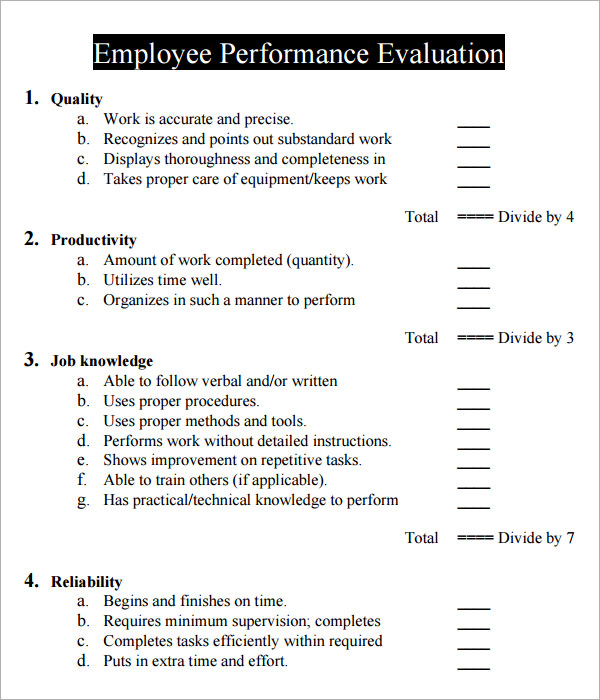
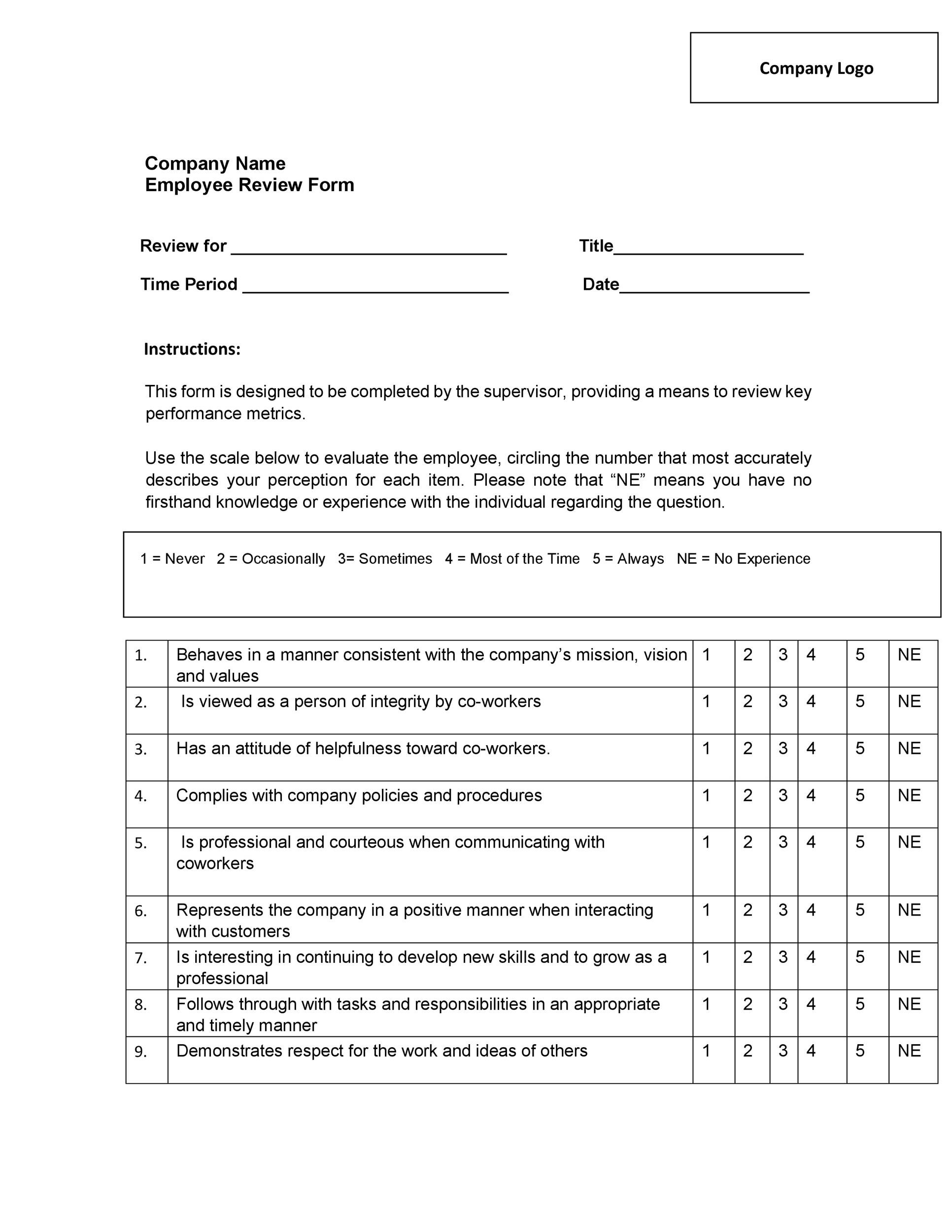
![Evaluation Of Employees Performance 12 Perfect Employee Evaluation Templates [FREE] - TemplateLab](https://templatelab.com/wp-content/uploads/2023/04/30-Day-Employee-Evaluation-Template-TemplateLab.com_.jpg)
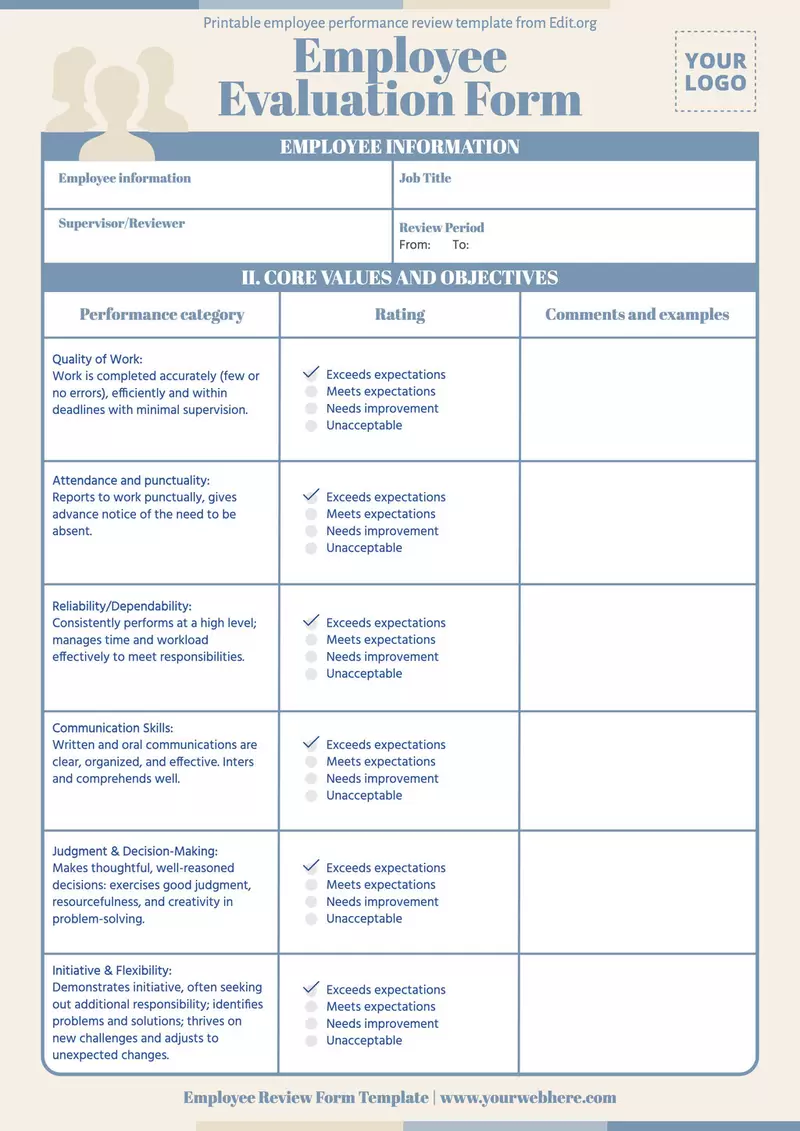
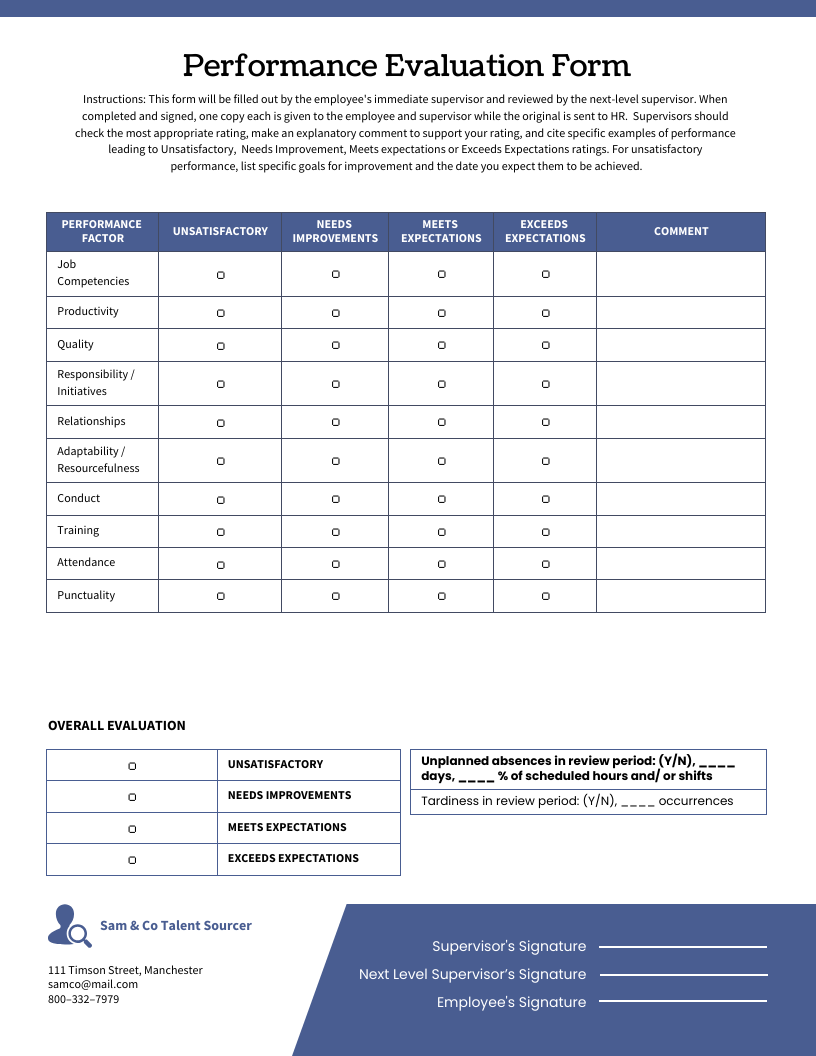
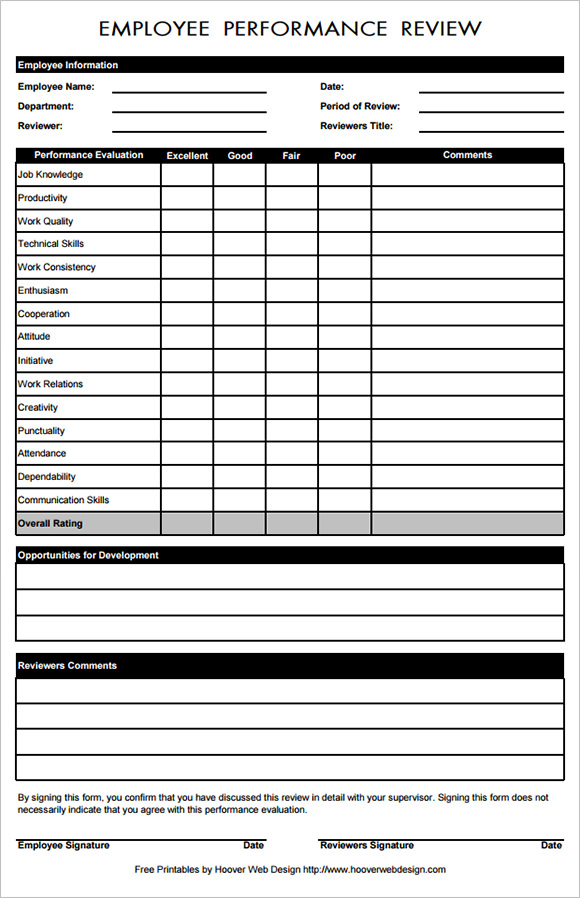
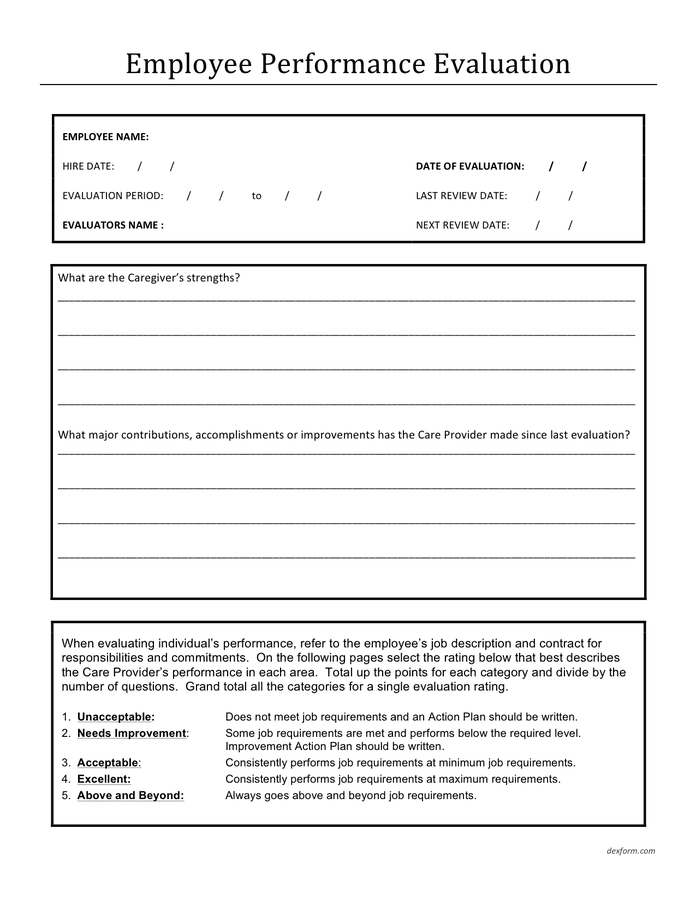
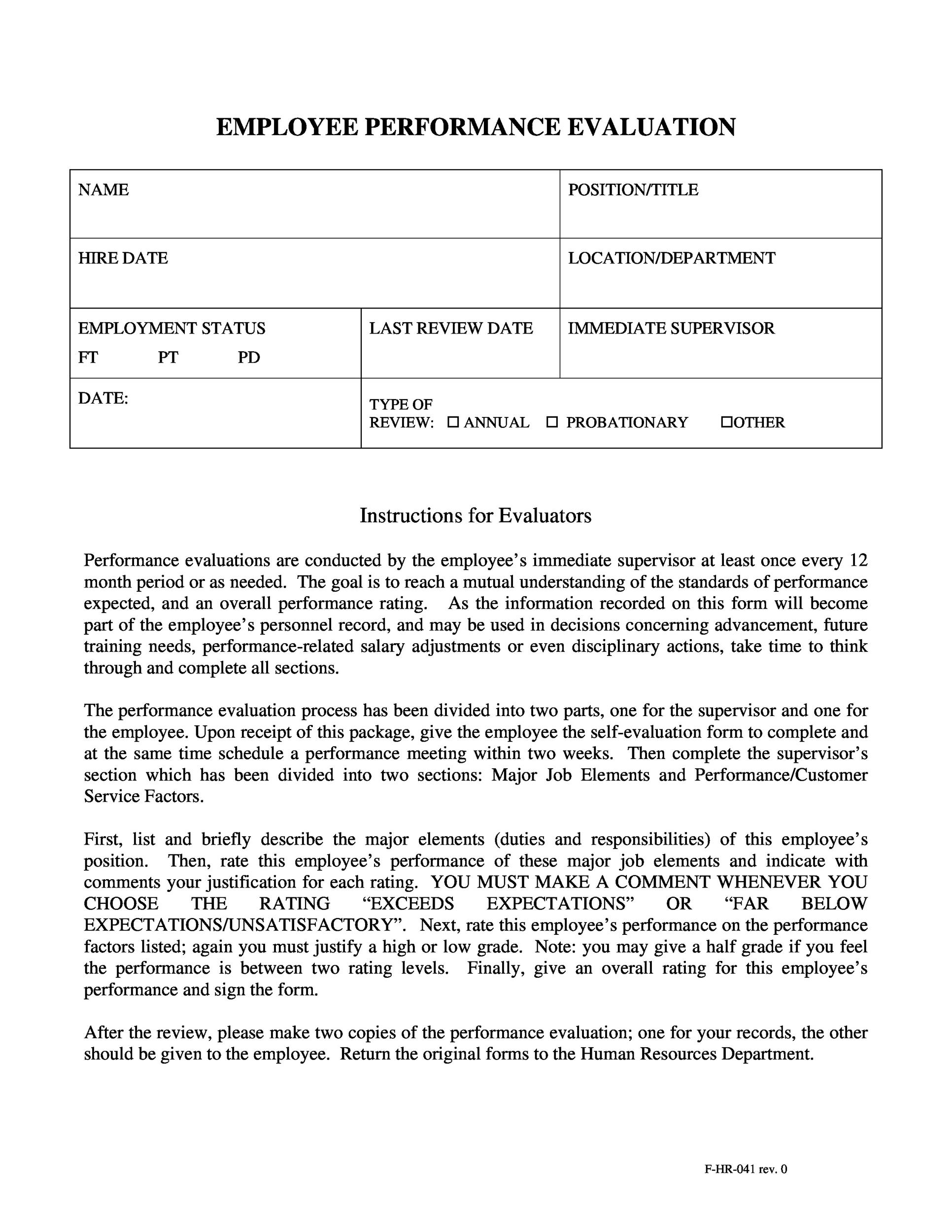
![Evaluation Of Employees Performance Employee Evaluation Template and Guide [Free Download] - AIHR](https://www.aihr.com/wp-content/uploads/employee-evaluation-form-excel.png)
